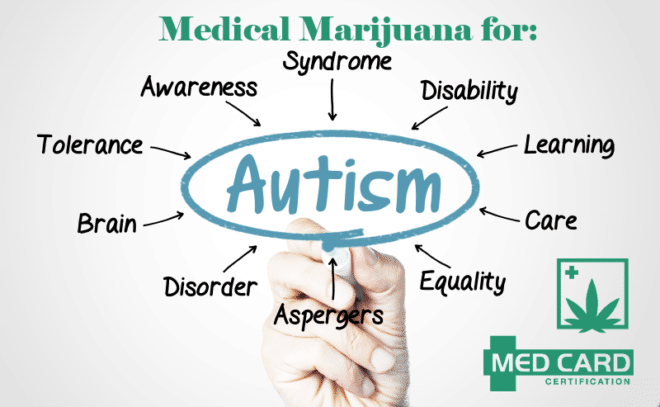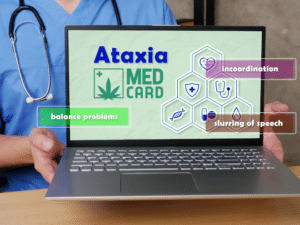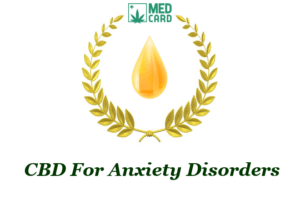
How to use medical marijuana to treat children with autism and Asperger’s syndrome
Can you use medical marijuana to treat autism and Asperger’s syndrome? There exists abundant evidence to suggest that the cannabinoid compounds produced in marijuana can help treat patients with autism. In this post, we’ll take a look at the autism spectrum and discuss how to use medical marijuana to treat autism and Asperger’s.
Despite the encouraging results of clinical studies, the use of medical marijuana to treat children is still highly controversial. This is especially true when it comes to treating children on the autism spectrum. It’s called a spectrum because the condition can manifest in a variety of different forms — including Asperger’s syndrome which is characterized by difficulties in social interaction.
What is autism? When it was first identified, autism was known as Kanner’s syndrome. It was later changed to Early Infantile Autism. In 1887 Dr. John Langdon Down first described autism as “developmental retardation.” Many years later, in 1943, Dr. Leo Kanner conducted studies with patients exhibiting symptoms of autism. The cause of autism is still not clear.
Could medical marijuana be used to help treat children suffering from autism and Asperger’s? Although there’s still a lot of pushback on this topic, many medical marijuana doctors treating childhood autism are saying, “yes!” But don’t rush out to your nearest medical marijuana dispensary and try to buy marijuana to give to your child! Read on.
What are the common characteristics of autism?
Whatever causes autism affects the processing of information in the brain by altering nerve cells and their synapses. The abnormalities make it difficult to properly interpret social cues including the nuances and subtleties of facial expressions, tone of voice, body language, and common gestures.
Autism is also oftentimes associated with repetitive behaviors such as rocking back and forth, arranging and rearranging objects, and continually repeating phrases or sounds. Autism patients are often incapable of seeing another’s perspective or understanding another’s feelings.
These issues can be extremely frustrating for autistic patients and result in self-harming tendencies such as self-biting, headbanging, and hair-pulling. In addition to these issues, autistic children often suffer with phobias, extreme anxiety, sleep disorders, and sometimes even seizures.
The standard treatment for autism involves the use of antipsychotic drugs that oftentimes have limited effectiveness. Risperidone (Risperdal), is approved by the FDA to reduce irritability in children with autism. And there are other drugs being used to treat autism such as selective serotonin reuptake inhibitors (SSRIs), anti-anxiety medications, and stimulants. Although these drugs may calm a patient down, they can be toxic to the body and oftentimes produce unwanted side effects such as lethargy.
Can medical marijuana help children with autism and Asperger's?
Active compounds produced in the buds of the cannabis plant called cannabinoids are the secret to marijuana’s many medicinal benefits. The two most commonly used cannabinoids are THC and CBD. Although they have a similar structure, THC, when used in sufficient dosages can cause intoxication, whereas CBD does not. As a result, most experts recommend using cannabis products that are very low in THC when treating children.
One story citing the efficacy of CBD, in particular, in the treatment of autism involves a non-verbal child who was prone to self-injury who was given a CBD-rich oil twice daily. After a lifetime of being non-communicative, this child spoke his first words. After three weeks the child had progressed to using sign language and is now able to enjoy a somewhat normal life.
There are innumerable stories such as this one that suggest that medical marijuana can be effective at treating some autism patients. But is there any actual scientific evidence that cannabis is safe and effective for treating autism and Asberger’s patients?
What studies have been done on treating autism and Asperger's with medical marijuana?
Some of the studies undertaken to assess the efficacy of cannabinoids in treating patients with autism and Asberger’s syndrome show that they can reduce anxiety and rage, temper tantrums, and seizures in autism patients. And it does this without severe or lasting side effects.
The six-month study was titled, “Real Life Experience of Medical Cannabis Treatment in Autism: Analysis of Safety and Efficacy” looked at the effects of cannabinoids in treating 188 teenage patients. The work was funded by medical marijuana firm Tikun Olam and performed at Ben-Gurion University in the Negev and Soroka Medical Center in Beersheva, Israel. According to the research report, 30 percent of the patients reported significant improvements while more than half reported moderate improvement.
Another clinical study (May 10, 2019, HealthDay News) undertaken by Dr. Adi Aran, Director, Pediatric Neurology at Shaare Zedek Medical Center, also in Jerusalem, produced similar results. In this study, children with autism were treated with full-spectrum cannabis oil for two four-week periods with a four-week break in the middle.
On two different scales used by parents and doctors to measure symptoms and behavior, patients showed improvement of 49 percent and 53 percent. Moreover, researchers saw a 50 percent improvement on the scale that indicates the severity of core symptoms. However, some of the children experienced lethargy, disturbed sleep, and decreased appetite when treated with oils containing THC. Dr. Aran is expanding the research with a follow-up clinical trial that will include more children from different countries.
These are just two examples of several studies past and present that show promise in treating autism and Asperger’s with cannabis.
How to use medical marijuana to treat autism and Asperger's
Cannabis, like most herbal remedies, can affect each patient differently. Because of this, determining which delivery methods and formulas are ideal for a particular autism patient can be tricky and might require some experimentation.
Many people who are unfamiliar with medical marijuana still picture patients smoking joints when people talk about cannabis medicine. However, we’ve come a long way since the days of buds and hashish.
The most common delivery methods for treating autistic children today are cannabis-derived tinctures (drops), edibles (cannabis-infused chews), or cannabinoid capsules. Each of these products comes in a wide array of cannabinoid formulas including the high-CBD, low-THC formulas.
What about dosage? While some conditions such as seizures might be required higher dosages, for the vast majority of autism patients, small dosages are actually more effective and less apt to produce intoxication and lethargy.
Experts suggest that children start with dosages of not more than 5 milligrams of CBD and only trace amounts of THC. Because edibles and capsules are generally produced with dosages of 10 milligrams or higher, over-the-counter, hemp-derived CBD tinctures are probably the best way to achieve accurate low-dose treatment.
Although CBD products are much easier to obtain than medical marijuana, parents of autistic children should discuss their options with a qualified physician who is experienced in the use of cannabinoids to treat autism before they rush out to buy and try CBD oil or cannabis oils containing THC.
It’s also important to point out that not all doctors, and certainly not all states support the use of medical marijuana products — especially those containing THC — to treat children on the autism spectrum.
get a marijuana card for autism and Asperger's

Sign Up for Medical Cannabis Today!
For potential patients, if you’re ready, we make it easy to connect with a medical marijuana doctor nearby or online. If you are interested in getting certified, please fill out the MMJ patient registration form below and press submit to get started. See if you qualify today!

MedCard Registration Form

Sources and additional reading:
- Cannabis Therapeutics: Dr. Bonni Goldstein
- Endocannabinoid Signaling in Autism
- CBD Anti Seizure Properties
- Mutations found in individuals with autism interfere with endocannabinoid signaling in the brain
- Cannabinoid receptor type 2, but not type 1, is up-regulated in peripheral blood mononuclear cells of children affected by autistic disorders
- A novel approach to the symptomatic treatment of autism
- Consequences of cannabinoid and monoaminergic system disruption in a mouse model of autism spectrum disorders
- Targeting the endocannabinoid system in the treatment of fragile X syndrome
- Deficient adolescent social behavior following early-life inflammation is ameliorated by augmentation of anandamide signaling














